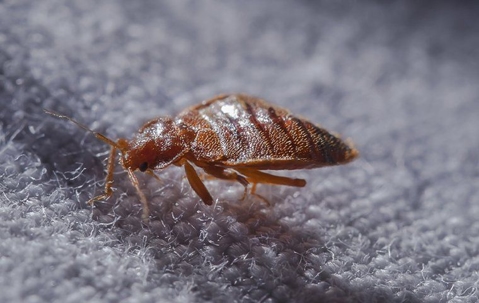Efficient Pest Control Steps to Protect Your Garden and Plants
In the world of gardening, the consistency of a well-tended garden can often be interfered with by unwanted bugs that endanger the wellness and vitality of plants. Implementing effective insect control determines not only safeguards the garden's aesthetic appeal yet also plays a critical duty in preserving the plants' health.
Natural Pest Repellents

An additional efficient natural pest repellent is diatomaceous planet, a grainy compound made from fossilized marine microorganisms. Diatomaceous earth works by physically harming insects with its abrasive texture, making it a superb choice for managing pests like slugs, beetles, and caterpillars. In addition, planting companion plants like marigolds, lavender, or basil can help repel parasites because of their strong aromas or natural chemical compounds.
Beneficial Pest for Insect Control

Another beneficial pest is the parasitic wasp, which lays its eggs inside parasite bugs, eventually killing them. Ground beetles are excellent for regulating caterpillars, snails, and slugs. Hoverflies, frequently mistaken for bees as a result of their similar look, feed on aphids, thrips, and caterpillars.
To bring in helpful pests to your garden, you can plant a diverse variety of flowering plants, such as dill, fennel, and yarrow, which supply nectar and plant pollen for adult bugs. Furthermore, prevent making use of broad-spectrum pesticides that can harm both dangerous and beneficial bugs. By creating a welcoming environment for these beneficial pests, you can reduce the need for chemical pesticides and advertise a much healthier, more balanced garden community.
Companion Growing Approaches
When intending to enhance the performance of beneficial insects in your garden for natural pest control, considering companion planting techniques can additionally maximize the ecological community equilibrium. Buddy planting includes strategically placing certain plants next to each various other to optimize their shared benefits, such as discouraging bugs, attracting valuable bugs, or enhancing nutrient uptake - bed bug exterminator houston near me. One preferred example is growing marigolds together with tomatoes to push back nematodes and various other damaging insects while additionally bring in pollinators
Planting trap plants like nasturtiums can divert bugs away from your main crops, serving as sacrificial plants that shield your beneficial produce. By carrying out friend planting approaches, you can produce a diverse and unified yard community that normally manages insects while advertising plant health and efficiency.
Do It Yourself Pest Control Solutions
To successfully take care of parasites in your yard, carrying out diy pest control services can be a cost-efficient and eco-friendly method. One typical do it yourself bug control service is producing home made insecticidal soaps by blending light soap with water to control soft-bodied insects like aphids, mites, and whiteflies. Additionally, introducing beneficial insects such as ladybugs, lacewings, bed bug exterminator houston llc and predative wasps can assist normally control bug populations in your garden. Setting up physical barriers like row covers or netting can also protect against insects like caterpillars from damaging your plants.
An additional reliable method is utilizing diatomaceous earth, a natural powder that can be sprayed around plants to discourage slugs, snails, and other creeping pests. Moreover, companion growing certain natural herbs and blossoms like marigolds, basil, and lavender can aid push back pests and attract advantageous insects. Routinely inspecting your plants for signs of bug damage and without delay eliminating any influenced areas can additionally protect against problems from dispersing. By incorporating these do it yourself insect control remedies into your horticulture regimen, you can protect your yard and plants without counting on rough chemicals.
Environmentally-Friendly Pesticides

One more reliable alternative is diatomaceous planet, a natural compound made from fossilized marine microorganisms, which can be sprayed around plants to manage slugs, snails, and various other creeping pests. Furthermore, insecticidal soaps and oils stemmed from plant-based sources serve for regulating soft-bodied parasites like aphids, mites, and whiteflies.
Final Thought
To conclude, effective insect control measures such as all-natural repellents, useful pests, companion planting strategies, DIY remedies, and environmentally-friendly pesticides are vital for safeguarding your yard and plants. By carrying out these methods, you can protect against damage created by bugs and preserve a healthy and balanced and growing yard community. It is necessary to think about the long-lasting effect of utilizing pesticides and choose even more lasting and eco-friendly alternatives to make certain the health and wellness of your plants and the setting.